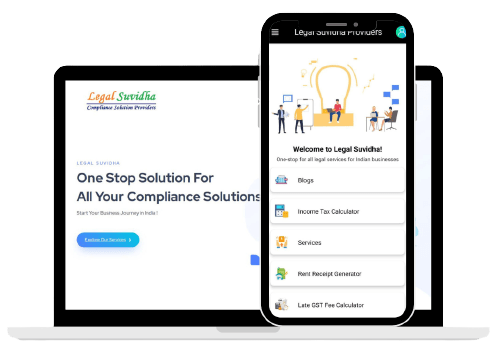GST for Startups: What You Must File, Track, and Automate
GST for Startups: What You Must File, Track, and Automate The Startup GST Mistake That Cost ₹10,000 We filed everything,...
There is a lot of discussion around Goods and Services Tax (GST) and the impact that it may have on small and medium businesses. Large enterprises are already preparing themselves for the change that they may have to make in their current system to comply with the new GST regime. There are, however, certain doubts among small and medium enterprises (SMEs) on the preparation required for a successful transition into the new tax regime. The SMEs must prepare themselves for the migration to the new tax structure from the current one.

Happy Clients
Years Experience

Happy Clients
Years Experience
GST Transition Filing
There is a lot of discussion around Goods and Services Tax (GST) and the impact that it may have on small and medium businesses. Large enterprises are already preparing themselves for the change that they may have to make in their current system to comply with the new GST regime. There are, however, certain doubts among small and medium enterprises (SMEs) on the preparation required for a successful transition into the new tax regime. The SMEs must prepare themselves for the migration to the new tax structure from the current one.
Input Tax Credit
According to the GST Act, a taxable person will be entitled to take credit of the amount of tax paid and carried forward in a return furnished under the earlier law. This credit will have to be taken in his or her electronic credit ledger, for the period before the appointed day. Now on analysis of this provision, what needs to be ensured as part of the transition process is, a taxpayer must furnish his last return under the old regime with the utmost care and should account all the input taxes paid and claim the credit of the same in the new regime. Thus, considering 1st July 2017 as the appointed day for the rollout of GST, a taxpayer should ensure that he has accounted for all the stock lying on 30th June 2017 and claimed the input credit in the return filing for the period ending on 30th June 2017. And the taxpayer must ensure that all such goods and services are eligible for such credit under the new GST law.
Input Credit on Capital Goods
Input credit on capital goods that have been purchased in the previous regime will be allowed in the new regime as well. The provisions for transition as specified under the model GST Law make clear references to such approval.
Credit of Excise Duty or Additional Customs Duty
This is probably the most critical provision of transition under GST. Under the present tax regime, a dealer or a trader is not allowed a credit of excise duty or additional customs against excise. Under the new tax regime, a supply of such goods will fall under GST but a credit of excise or additional custom duty will not be allowed. The immediate result of this would be the levying of GST on goods that have already been taxed under the existing tax procedure, without any credit availability. This may lead to cascading and distortion of prices. This may also result in stock returns from dealers and traders to the manufacturers before the appointed day, and further making a new purchase after that day. Such situations may lead to panic among manufacturers and in turn affect their profits and returns.
Composition Scheme
Under the composition scheme of the new regime, the taxpayer must keep himself/herself in the know-how about the implications that migration from the old regime to the new regime may have. Now, such migration is expected to have a huge impact as the limit of the turnover under GST is Rs. 50 lakh, as against the existing Rs. 10 lakh.
It would, thus, be safe and fair to assume that many taxpayers will move from being regular taxpayers to pay taxes under the composition scheme.
The opposite of this would be wherein dealers, who are under the composition scheme, would be transformed into a being regular taxpayers. This may happen if the goods they are dealing in does not qualify under the exemption list of the new regime.
| Authorisation to Collect Tax | Only registered persons can collect GST from customers on the supplies of goods or services or both & subsequently utilize the ITC. |
| Single Platform | With the implementation of GST in India, the indirect taxes would be streamlined and standardized. A single GST registration for the respective state(s) in India from where the supply of goods and/or services will be sufficient. |
| One nation one tax | GST subsumes various other taxes like Central Sales Tax, Additional Customs Duty, Purchase Tax, Luxury Tax, etc., Hence, under GST, many of the taxes in existence today would be subsumed and made into one tax. |
| Ease of doing Business | Currently, many businesses like restaurants, computer sales, and services businesses have to comply with both VAT and Service Tax. This creates a compliance burden on the business, as they have to calculate taxes for the transaction based on different rates for different items. GST won’t make the distinction between goods and services which will, in turn, leads to relief to the business. |
| Increase tax payers volume | GST will work on value addition concept and it is expected that new registration will come in existence to take to benefit of Input Tax in the Transaction chain. GST allows a seamless flow of input tax credit. |
| Lower taxes | Currently in some states under the VAT regime, businesses are required to comply with VAT regulations once they cross an annual turnover of Rs.5 lakhs. Under the GST regime, GST liability accrues only if an entity crosses an annual turnover of Rs.10 lakhs in northeast or hilly states, whereas, for the rest of India, the threshold is set at Rs.20 lakhs which ultimately leads to lower tax payment. |
Step 1: Introduction: According to the GST Act, every entity registered under any of the earlier laws shall be issued a certificate of registration on a provisional basis on the appointed day, which is the 1st of July 2017. This certificate will be valid for 6 months within which a registered taxpayer may have to furnish the required information.
Step 2: Registration: On analysis of this provision, we can conclude that a registered taxpayer need not worry to again register under the GST regime as automatic registration will be granted on the appointed day. However, such registration will be a provisional registration and the taxpayer may need to furnish some additional documents electronically which will be notified. After that, the certificate of registration would be granted on a final basis.
1. Provisional ID obtained by the concerned department
2. Password obtained by the concerned department
3. Valid email address
4. Valid mobile number
5. Proof of constitution of business:
In case of partnership deed – Partnership Deed
In the case of others: Registration Certification of the business entity
6. Photograph of promoters/partners/Karta of HUF
7. Proof of appointment of authorized signatory
8. Photograph of authorized signatory
1. Bank account number
2. Address of branch
3. Address of account holder
4. Few transaction details
Goods and Services Tax (GST) is a comprehensive tax levied on manufacture, trade, and services across India. From 1st July 2017 GST will replace most of the Centre and State imposed indirect taxes like VAT, Service Tax, Excise, etc. Goods and Services Tax Identification Number (GSTIN) is a 15 digits state-wise PAN-based number to be used to identify businesses registered under GST.
GST regulations are applicable if your annual turnover is Rs. 20 lakhs or above. In the case of North Eastern states (Arunachal Pradesh, Assam, Manipur, Meghalaya, Mizoram, Nagaland, and Tripura) and hilly regions i.e. Himachal Pradesh, Uttarakhand, Jammu & Kashmir, and Sikkim, the threshold limit is Rs. 10 lakhs.
PAN is mandatory to apply for GST registration (except for the non-resident person who can get GST registration based on other documents)
An existing taxpayer is an entity currently registered under any State or Central laws, like Value Added Tax Act, Central Excise Act, and Service Tax Act.
All existing taxpayers registered under any of the Acts as specified will be transitioned to GST. The enrolment for GST will ensure a smooth transition to the GST regime. The data available with various tax authorities is incomplete and thus fresh enrolment has been planned. Also, this will ensure the latest data of taxpayers is available in the GST database without any recourse to the amendment process, which is the norm to update the data under tax statutes today.
Yes, the Enrolment Application for enrolment under GST can be rejected in case incorrect details have been furnished or uploaded fake or incorrect documents have been attached with the Enrolment Application and the application is electronically signed. However, the applicant taxpayer will be provided a reasonable opportunity of being heard where the applicant taxpayer can present his or her viewpoints.
Yes, the mobile number and e-mail address can be changed after the appointed date on following the amendment process.
The Provisional Registration Certificate will be available for viewing and download at the Dashboard of the GST Common Portal on the appointed date. The certificate will be available only if the Registration Application was submitted successfully.
The final Registration Certificate will be issued within 6 months of verification of documents by authorized Center/ State officials of the concerned Jurisdiction (s) after the appointed date.
With a commitment to exceeding expectations and a passion for delivering results, choosing us means choosing a partner dedicated to your success.

We provide free of cost consultation and legal advice to our clients.

We are a team of more than 15+ professionals with 11 years of experience.


All our services are online no need you to travel from your place.

There are no hidden & extra charges* other than the quote/invoice we provide.

We aim that all our customers are fully satisfied with our services.

We value your time and we promise all our services are delivered on time.

We provide free of cost consultation and legal advice to our clients.
In this Journey of the past 14+ years, we had gained the trust of many startups, businesses, and professionals in India and stand with a 4.9/5 rating in google reviews.We register business online and save time & paperwork.
Trustindex verifies that the original source of the review is Google. I recently got my trademark registered through Legal Suvidha, and I must say the experience was absolutely seamless. The team was proactive in updating me about every stage of the TM application process and patiently answered all my queries. Highly recommended to any startup or business owner looking for reliable legal and compliance support.Trustindex verifies that the original source of the review is Google. I’ve been working with this firm for the past 3 years, and I couldn’t be more satisfied with their services. Their team has consistently provided accurate, timely, and dependable financial and compliance support. A special thanks to Priyanka and Mayank for their dedication, professionalism, and personal attention to every detail. Highly recommended for anyone looking for reliable services!Trustindex verifies that the original source of the review is Google. I've been working with Priyanka and her team at Legal Suvidha for the past 5 years for my LLP, Adornfx Multimedia. They've consistently provided excellent support, especially with ROC filings. Their service is reliable, timely, and hassle-free. Highly recommended!Trustindex verifies that the original source of the review is Google. I am delighted to share my experience with Legal Suvidha Firm, where professionalism and dedication shine through in every interaction. Having worked with them for the past 3-4 years, I can confidently say that their team is truly exceptional. The commitment they show to their work is truly commendable; they deliver on every promise made without any hint of fraud or dishonesty, which unfortunately is not the case with many firms in the market today. Their integrity sets them apart and gives clients the peace of mind they need when it comes to legal matters or any other certifications. Moreover, I have found their pricing to be very reasonable and reflect the quality of services provided. They offer excellent value for money, ensuring that their clients receive top-notch legal services without breaking the bank. I highly recommend Legal Suvidha Legal Firm without any hesitation. If you’re looking for a reliable legal partner with a dedicated team that truly cares, look no further than Legal Suvidha. My experience has been nothing short of excellent, and I am confident that others will feel the same! For Talin Remedies Pvt Ltd Ravi KumarTrustindex verifies that the original source of the review is Google. One of the easiest firms to work with. Soft-spoken, well aware of their scope of work, and the most affordable (especially for new comers). They're always available to help out giving solutions in the easiest way possible. Got their number from a mentor, and would highly recommend their services if you're looking to start and manage accountancy/compliance related work for your firm!Trustindex verifies that the original source of the review is Google. Mayank & the Legal Suvidha team are fantastic. They really try to understand the business like insiders and don't give you templatized solutions. The staff are extremely supportive and go out of their way to help you. I would recommend Mayank to anybody new to the startup ecosystem!Verified by TrustindexTrustindex verified badge is the Universal Symbol of Trust. Only the greatest companies can get the verified badge who has a review score above 4.5, based on customer reviews over the past 12 months. Read more


Explore more of our blogs to have better clarity and understanding
of the latest corporate & business updates.
GST for Startups: What You Must File, Track, and Automate The Startup GST Mistake That Cost ₹10,000 We filed everything,...
FEMA, FDI & RBI Reporting: A Complete Guide for Founders How one simple fund transfer triggered a ₹3.5 lakh fine....
Top 5 Startup Tax Deductions You’re Probably Missing Are You Overpaying Taxes Without Realizing It? Most startup founders miss legal...
A CA’s Guide to Startup Financial Statements Before Fundraise A Real Startup Fundraising Story That Went Wrong Sir, we had...
Legal Roadmap for Building a 100 Crore Startup in India The Mistake That Cost a Founder Crores I never thought...
MSME Compliance After ₹100 Crore Turnover: What Changes? The ₹100 Crore Celebration That Came with a Catch We made it...
Here are some answers to potential questions that may arise as you start your business.
Register your business, obtain necessary licenses, and fulfill tax obligations.
Consider factors like ownership, liability, and tax implications to choose from options like sole proprietorship, partnership, or company registration.
Choose a unique business name, obtain required IDs like Director Identification Number (DIN), and file incorporation documents with the Registrar of Companies (ROC).
Obtain GST registration, trade licenses, and any industry-specific permits required to operate legally.
Maintain accurate financial records, file tax returns on time, and adhere to the tax laws applicable to your business.
Yes, startups in India can benefit from various government schemes offering tax exemptions, funding support, and incubation facilities.
Secure patents, trademarks, or copyrights to safeguard your intellectual assets from infringement or unauthorized use.
Challenges include navigating bureaucratic hurdles, complying with complex regulations, and competing in a crowded marketplace.
Looking For More Information? Contact Us
Sign up to receive email updates on new product announcements, special promotions, sales & more.
Redefining the experience of legal services. Now all Professional Services in a Single Click !


Copyright © 2025 Legal Suvidha Providers LLP. All rights reserved.